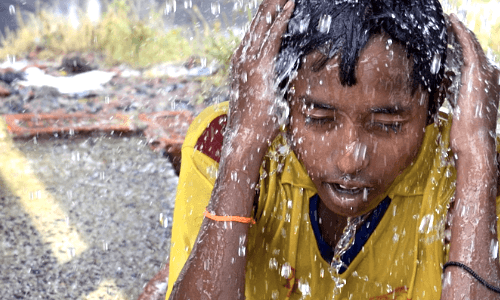

Need proof that we’re having the hottest year on record? Scorching heat is searing parts of the world, sparking wildfires and claiming lives due to heat stroke and dehydration.
Photo Credit: Saikat Paul / Shutterstock.com
1. India. The relentless heat since mid-April has claimed about 2,330 lives, overwhelming hospitals and devastating the country. As we previously reported, officials have blamed the heat on global warming.
“It’s not just another unusually hot summer—it is climate change,” said Dr. Harsh Vardhan, India’s Minister of Science and Technology and Earth Sciences. “Let us not fool ourselves that there is no connection between the unusual number of deaths from the ongoing heatwave and the certainty of another failed monsoon.”
Temperatures have neared 122 degrees Fahrenheit (50 degrees Celsius), causing roads to literally melt in New Delhi.
Heat wave in India is literally melting the roads with temps up to 48 °C / 118 °F. http://t.co/TNMvePI5Dj pic.twitter.com/j8gx5DYOz7
— Imgur (@imgur) May 26, 2015
2. Pakistan. India’s neighboring country is also suffering from the horrible heat, with the city of Karachi experiencing temperatures of 113 degrees Fahrenheit (45 degrees Celsius). According to BBC News, the weather has led to the deaths of nearly 700 people, mostly poor and elderly.
Making matters worse, with Pakistanis observing the holy month of Ramadan and fasting during daylight hours, an increased use of electricity for air conditioning has caused outages on their already-unstable grid.
In Video: As deadly heat wave hits Pakistan, Al Jazeera speaks to families of victims http://t.co/nk8VX7H62A pic.twitter.com/McYpZQCD18
— AJE News (@AJENews) June 22, 2015
3. The U.S. Southeast. Over on our shores, temperatures in the American South are about 5-15 degrees higher than usual with temperatures ranging between 100 and 115 degrees Fahrenheit, AccuWeather noted. Southerners, especially in southern Georgia and Florida, are also sweltering in the extreme humidity (in the upper 60s and 70s), making it feel even hotter, Weather.com reported.
A dangerous heat wave will persist across the South this week. http://t.co/F8yA3t07Hf pic.twitter.com/9fQ1W6wu63
— AccuWeather.com (@breakingweather) June 22, 2015
Those on the West Coast should also brace for extreme heat and wildfires later this month, due to a shift in the jet stream pattern.

 233k
233k  41k
41k  Subscribe
Subscribe 
